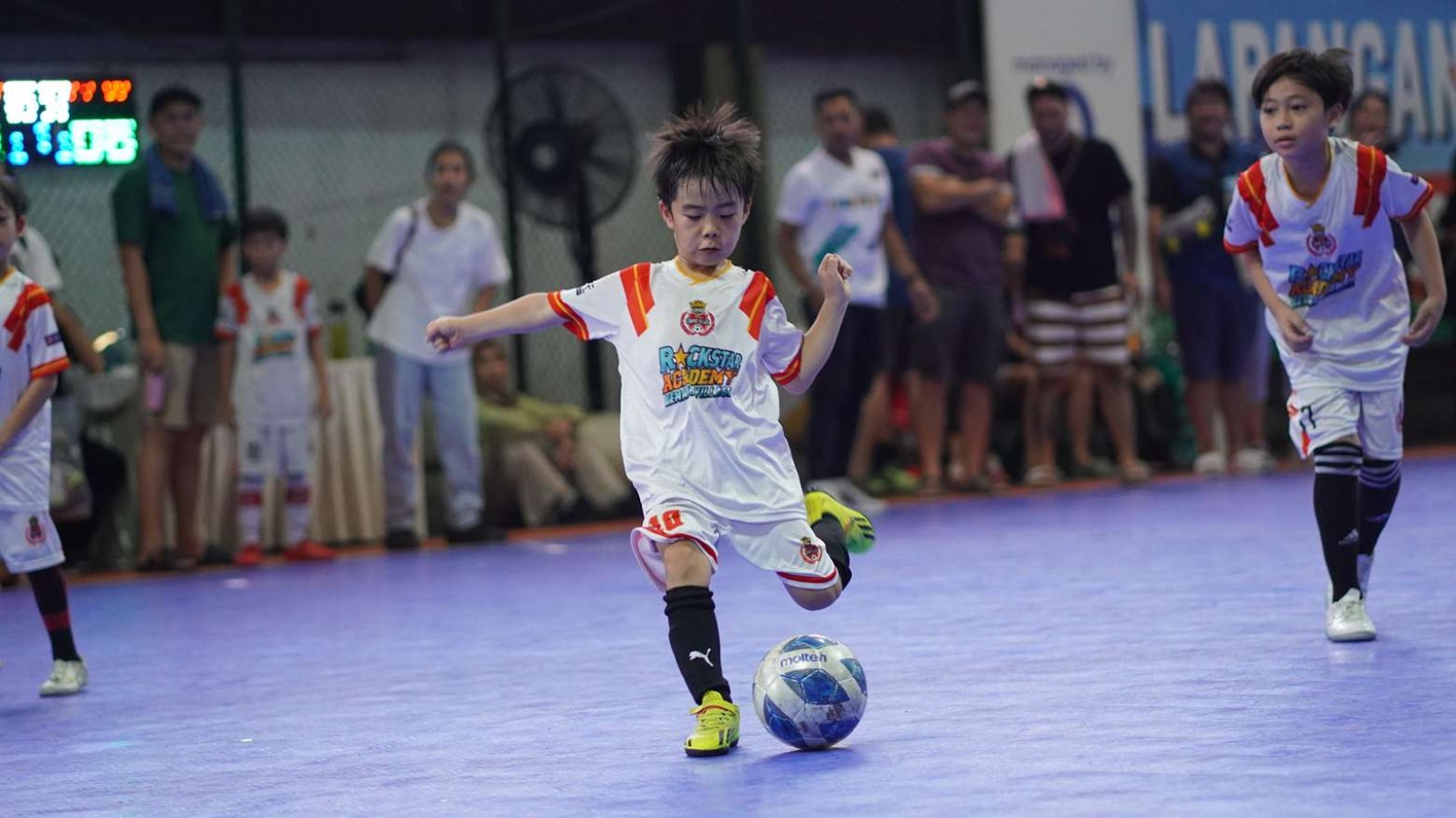Singing Training For Kids and Teens

Music has the power to uplift the spirit, and singing is a universal language that transcends boundaries. For children and teenagers, the journey into the realm of vocal prowess is both exhilarating and transformative.
Sing training becomes a gateway to unlocking their musical potential, fostering creativity, and building confidence. In this article, we delve into the exciting realm of singing training for kids and teens, exploring the various avenues through which young individuals can embark on a journey of vocal discovery.
What Age Should a Child Start Voice Lessons?
If your child loves to sing, you might be wondering: What’s the right age to start voice lessons? While kids naturally start singing from a young age, formal vocal training requires the right balance of physical and mental readiness. So, when is the best time to enroll them in a vocal course?
Ideal Age to Start Voice Lessons
Most vocal coaches recommend starting formal singing lessons around 7 to 9 years old. At this age, children have better focus, their vocal cords are more developed, and they can understand techniques like breathing control and pitch accuracy.
However, this doesn’t mean younger kids can’t explore music! If your child is under 7, they can still join fun, music-based programs that introduce them to rhythm, melody, and vocal exercises without straining their voice.
Why Not Too Early?
You might hear your 4 or 5-year-old singing beautifully and think, “Why not start now?” While young children have a natural love for singing, their vocal cords are still delicate. Singing with improper techniques at a young age can lead to strain and damage. Instead, early childhood music classes can help develop their ear for music and prepare them for formal training later.
Signs Your Child is Ready for Voice Lessons
Every child is different! Here are some signs they might be ready to start formal vocal lessons:
- They love singing regularly – They hum, sing along to songs, and show excitement for music.
- They can follow instructions – Vocal training requires listening and applying techniques.
- They have good breath control – They don’t run out of breath quickly while singing.
- They show an interest in learning proper singing techniques – Not just for fun, but to improve their skills.
How Do I Help Prepare My Child for Vocal Lessons?
Enrolling your child in vocal lessons is an exciting step in nurturing their love for singing. However, to make the most out of each session, proper preparation is essential. As a parent, you can support your child in several ways to ensure they are physically and mentally ready for their singing lessons.
First, make sure your child is well-rested and well-hydrated on the day of their lesson. Singing requires energy and focus, so a good night’s sleep will help them stay engaged and perform their best. Hydration is also key, as dry vocal cords can lead to strain and discomfort. Encourage your child to drink plenty of water throughout the day and bring a water bottle to their lesson.
Another important tip is to avoid dairy products right before singing. Dairy can cause excess mucus production, making it harder for your child to sing clearly and comfortably. Instead, opt for light, non-dairy snacks if they need a quick bite before their session.
After the lesson, take a moment to talk with your child about their experience. Ask how the session went and whether they enjoyed it. This helps reinforce their enthusiasm and allows you to gauge if they feel comfortable and are learning effectively. Encouragement and positive reinforcement will help boost their confidence and keep them motivated to continue their vocal training.
How to Teach Children to Sing
Teaching children to sing can be a fulfilling and enjoyable experience, requiring a combination of patience, creativity, and a supportive approach. Here are some effective strategies for guiding children in developing their singing abilities:
1. Create a Positive Environment
Establish a positive and encouraging atmosphere where children feel comfortable expressing themselves. Building confidence is crucial in fostering a love for singing. Avoid placing undue pressure on perfection; instead, focus on the joy of making music.
2. Pitch and Rhythm Basics
Start with the basics of pitch and rhythm. Use simple exercises and games to help children grasp these fundamental elements of music. Clapping, stomping, or using hand motions can make learning these concepts fun and interactive.
3. Breath Control Exercises
Teach kids the importance of breath control in singing. Simple exercises like blowing bubbles or pretending to blow up a balloon can help them understand how to control their breath while singing.
4. Vocal Warm-ups
Implement age-appropriate vocal warm-up exercises to prepare young voices for singing. These can include humming, sirens, or gentle scales to promote flexibility and prevent strain.
While engaging in warm-up exercises, you can also try these several activities:
- Imitate cartoon characters to demonstrate variations in high and low pitches
- Produce animal sounds to explore both high and low tones as well as prolonged and brief sounds
- Reinforce the concept that each person's voice functions as a musical instrument
- Simulate a siren to facilitate a vocal warm-up by transitioning from low to high pitches and vice versa
- Incorporate yawning exercises to stretch and then relax the facial muscles
- Include lion face yoga, involving maintaining a silent "roar" pose for 15-30 seconds
- Perform vocal exercises such as singing arpeggios (broken chords), scales, or nursery rhyme melodies while incorporating the mentioned note vocabulary such as letters, colors, and scale degrees
5. Use Visual Aids
Incorporate visual aids like pictures, diagrams, or videos to explain musical concepts. Visual aids play a crucial role in reinforcing musical concepts, providing clarity, and aiding in the understanding of various elements related to singing.
6. Incorporate Games
Introduce games that involve singing to make learning enjoyable. Games like "Simon Says" with a musical twist or incorporating songs into traditional games can keep children engaged while learning.
Easy Activities To Help Kids Start Singing
Engaging children in the joy of singing can be a delightful and educational experience. Introducing them to easy and enjoyable activities not only fosters a love for music but also enhances their cognitive and emotional development. As parents, here are several activities you can do to help your children’s sing training:
1. Sing-Along Sessions
Organize sing-along sessions with familiar songs. Choose age-appropriate tunes that kids can easily follow, and encourage them to sing along. This not only enhances singing skills but also fosters a sense of community.
2. Karaoke Nights
Arrange karaoke nights where children can pick their favorite songs and sing with instrumental tracks. Karaoke provides an opportunity for kids to showcase their singing talents in a fun and supportive environment.
3. Storytelling Through Song
Encourage children to create stories through song. This activity combines creativity with singing, allowing kids to express themselves while developing their narrative and vocal skills.
4. Musical Story Books
Introduce musical story books that include songs. Reading along and singing with these books can be an engaging way to enhance children's literacy skills while introducing them to different musical styles.
5. Body Percussion
Explore the rhythm of songs through body percussion. Clapping, stomping, and snapping along to the beat of a song not only reinforces rhythm but also adds a kinesthetic element to the singing experience.
Boost Your Sing Training With Rockstar Academy!
Singing training for kids and teens can be a rewarding and enjoyable experience that not only nurtures musical talent but also contributes to overall personal development. By incorporating fun activities and maintaining a positive learning environment, parents and educators can inspire a lifelong love for singing in the younger generation.
In addition, you can also enroll your children in singing class to improve their skills. For those considering enrolling their children in a singing class, Rockstar Academy stands out as the best Sports & Performing Arts Academy for you.
With their innovative Broadway program designed to cultivate and improve singing skills in children and teens, Rockstar Academy provides a nurturing environment for young voices to flourish.
What's more, they welcome the curious with a free trial class, allowing everyone the opportunity to explore the transformative power of singing in a supportive and enriching setting. So, why not let your child's musical journey begin with the harmony and melody at Rockstar Academy?
FAQs
1. Can Every Child Learn to Sing?
Absolutely! Every child has the potential to learn and enjoy singing with the right guidance and encouragement.
2. How Can I Make Singing Lessons Fun for Kids?
Incorporate games, props, and interactive activities to make singing lessons enjoyable and engaging for children.
3. What Age is Ideal to Start Singing Lessons?
Children can start exploring singing at a young age, typically around 5 to 7 years old. However, exposure to music can begin even earlier.
4. Are Formal Singing Lessons Necessary for Children?
Formal lessons can provide structured guidance, but fostering a love for singing through informal, fun activities is equally important.
5. Can singing training improve a child's academic performance?
Yes, singing has been linked to improved cognitive abilities, including enhanced memory and language skills, which can positively impact academic performance.
6. What if my child is shy about singing?
Try to create a supportive environment that emphasizes enjoyment rather than perfection. Encourage singing in a group setting initially and gradually build individual confidence.



